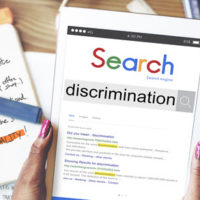The U.S. Supreme Court Has Accepted Three Workplace Discrimination Cases That Could Shape the Future of Title VII Protections

The U.S. Supreme Court recently accepted three cases that will determine whether Title VII of the Civil Rights Act prohibits discrimination in the workplace based on gender identity and/or sexual orientation. In each of the cases, it is clear that the plaintiffs suing were terminated because of their gender identity. Still, the administration has encouraged the Court to find that include gender and identity sex discrimination are not covered under Title VII.
Case Law Is On The Side Of The Workers
Two of the current cases before the Court—which will likely be heard this fall—involve claims where employers discriminated based on sexual orientation; while the third looks at whether existing discrimination laws apply to transgender employees. Decisions on the cases are expected to be rendered in the fall of 2020.
Over the last 20 years, the federal courts have split on the issue of whether Title VII prohibits discrimination based on gender identity and/or sexual orientation; although it is important to note that transgender plaintiffs have won nearly even case brought. The Supreme Court has also repeatedly held that workplace discrimination based on sex is illegal, regardless of whether all men and/or women are affected by the discrimination. One example is a 1989 case in which the Court found in favor of a woman who was denied partnership at a firm because she was deemed to be too “unfeminine.” The Court found that such gender stereotyping violates Title VII, even if it does not affect all women. In addition, in a notable 1998 case, the Court held the Title VII also prohibits male-on-male harassment; even if Congress did not explicitly contemplate such an issue; because the laws are designed to “cover reasonably comparable evils.”
The Administration Wants To Limit Title VII Protections
These decisions will either move the line towards providing greater protections for LGBTQ individuals, or shift that momentum; although it would be surprising if the Supreme Court rules against LGBTQ workers in these new cases; given decades of established case law.
Still, the U.S. Solicitor General, expressing the views of the current administration, has indicated that Title VII only applies to workplace policies that would disadvantage all men or women and Congress only intended for the law to cover discrimination based on “biological sex.” If the Court agrees with the Solicitor General, it could upend a number of Title VII protections in general, especially those related to sexual harassment.
If You Have Experienced Workplace Discrimination, Contact Our Florida Employment Lawyers
Our Florida employment attorneys help hold employers accountable in the courtroom. If you have been the victim of discrimination in the workplace, contact one of our Jacksonville labor and employment attorneys at Douglas & Douglas, Attorneys at Law today to find out how we can help.
Resources:
latimes.com/opinion/op-ed/la-oe-minter-supreme-court-cases-lgbt-gay-job-discrimination-20190502-story.html
npr.org/2019/04/22/716010002/supreme-court-will-hear-cases-on-lgbtq-discrimination-protections-for-employees
/employment-discrimination-case-filed-against-ibm-after-expose-released/
